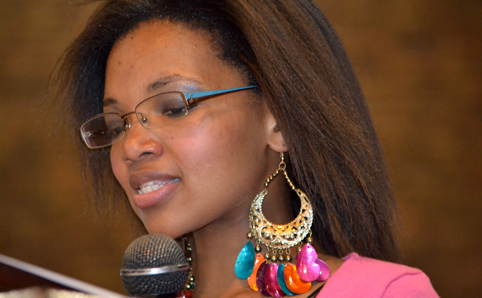Latest News Archive
Please select Category, Year, and then Month to display items
30 May 2025
|
Story Prof Mikateko Mathebula
|
Photo Supplied
 Pictured (from left to right): Prof Faith Mkwananzi, Dr Kapambwe Mwelwa, Prof Lochner Marais, Prof Chikumbutso Manthalu, and Prof Mikateko Mathebula.
Pictured (from left to right): Prof Faith Mkwananzi, Dr Kapambwe Mwelwa, Prof Lochner Marais, Prof Chikumbutso Manthalu, and Prof Mikateko Mathebula.
Through collaborative agreements with the University of Malawi and the University of Zambia, the University of the Free State (UFS) has established the Research Alliance for Higher Education in Africa (RAHEdA), a dynamic initiative aimed at enhancing research capacity and partnerships within Sub-Saharan Africa.
The collaborative agreements align with the UFS’s Vision 130 strategy in relation to internationalisation, emphasising the important role that intra-African mobility visits play in establishing relationships with universities on the continent. It also fosters knowledge exchange and engagement and allows for careful planning and strategy meetings.
“During these discussions, an ambitious but feasible roadmap was laid out for the next three to five years,” Prof Mkwananzi said. “These activities include online workshops for staff and postgraduate students at all partner institutions, and a new webinar series that focuses on profiling, advancing, and celebrating thought leaders, higher education scholars, and scholarship in Africa.”
The inaugural webinar was held on 21 May 2025. Speaker Prof Siseko Kumalo, Associate Professor at the University of Johannesburg’s Ali Mazrui Centre for Higher Education Studies, spoke on ‘Orality as the Bulwark of the Humanities?’, set the bar high for the webinar series through his compelling and original response to this timely question, as scholars around the world contemplate appropriate responses to the rise and influence of artificial intelligence in higher education teaching, learning, and assessment.
Funding to support RAHEdA has been generously provided by Prof Melanie Walker, Distinguished Professor and SARChI Chair in Higher Education and Human Development.
• For information on how to get involved and for updates on RAHEdA, please contact Prof Mikateko Mathebula at MathebulaM@ufs.ac.za
Beyers Naudé challenge still stands – Dr Allan Boesak
2011-09-14
|

|
|
Dineo Babili, a first-year Foundation-phase Education student, reading out her winning essay during the final Beyers Naudé Memorial Lecture held last Friday. Dineo and Siphesihle Mavundla (poetry) both won R3 000,00 each from Kagiso Trust.
Photo: Thabo Kessah
|
The eighth Annual Beyers Naudé Memorial Lecture Series reached its climax with the third and last lecture being presented by Dr Allan Boesak at our Qwaqwa Campus on Friday, 9 September 2011. The first two lectures were presented by our Vice-Chancellor and Rector, Prof. Jonathan Jansen, and Prof. Kwandiwe Kondlo who heads our Centre for Africa Studies, respectively.
In his address, Dr Boesak posed hard-hitting questions, such as ‘'What kind of society do we want to be? At what price are we willing to sell the noble history of the struggle, the ideals and hopes of our people, the meaning of the freedom we sacrificed for?'’ He spoke fondly of his former friend and colleague who had appealed to the government of the day in 1973 to understand that the future security of our country did not lie with a consensus of white opinion, but rather ‘'a consensus of white and black opinion'’.
Dr Boesak said that Oom Bey had asked white people ‘to speak and act before it was too late’ and that he appealed to black people to prepare for the day on which they would be truly free.
‘'That was his hope. When he died, democracy had come, but this hope had not been realised and today we are in serious danger of losing it altogether. We have the matchless Freedom Charter; we have a most progressive Constitution; we have an impressive body of laws and we have enviable policy positions. However, the challenge from Beyers Naudé still stands and it comes to a new generation: it is time to transform words into deeds. The time for pious talk is over,'’ said Dr Boesak.
The lecture was well received by students and staff, as well as leaders and representatives from various sectors in the community. Learners and educators from a number of schools in the region also attended. Next year’s series will be hosted on the South Campus in Bloemfontein.